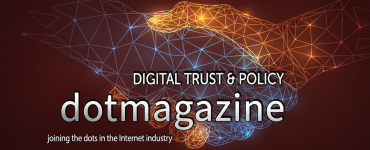The following guest commentary by eco’s Managing Director Alexander Rabe appeared in the “Süddeutsche Zeitung” dossier on 10 January 2025:
Germany is facing a new election. On 23 February 2025, eligible voters in Germany will decide on new majorities in the German Bundestag and thus also on a new German federal government. What role will digital policy play in this election and in the subsequent coalition negotiations?
As a member of the German “Digital Strategy Advisory Board”, I have gained various insights into the implementation of digital projects in the current German federal government over the last two years. Based on this experience, I can only urgently advise all future federal decision-makers to allocate both time and external expertise for this part of coalition negotiations.
The previous German “traffic light coalition” government had actually announced several important digital policy initiatives in their coalition agreement – such as the introduction of Ministry for Digitalisation, the development of a digital strategy, and a dedicated digital budget. Unfortunately, however, they did not generate any fundamental changes in the political and administrative processes.
The current framework conditions and structures for implementing digital projects are still inadequate and have caused inefficiency and frustration among all of the involved parties. As a result, many persistent digital policy challenges could not be resolved and must now be addressed and prioritised by a new federal government. In Germany, we are still waiting for the following:
- a modern and functional digital administration,
- comprehensive and comparable digital education,
- a future-proof ecosystem of high-performance digital infrastructures, and
- a coherent IT security policy.
One thing is clear: the forthcoming German federal government must act much more decisively and consistently in order to strengthen Germany’s digital competitiveness and sustainably secure the state’s ability to act.
To achieve this, we need a digital policy process revolution that is oriented towards driving the digital transformation of the state, administration and society with new structures, responsibilities and departmental remits. The cornerstones for this must already be clearly defined in the coalition agreement of a new federal government.
Essential components of this reorganisation of state processes must include a digital strategy for “Digital Germany 2030” that is supported by all government parties. This requires a strong Ministry for Digitalisation with cross-departmental competencies, equipped with its own digital budget that can also provide financing commitments beyond the legislative period, as well as the right to veto regulatory or implementation proposals that contradict the spirit of the digital strategy. Ideally, such a Ministry for Digitalisation should consolidate all central competencies for digital infrastructures, services and related regulation.
Furthermore, a permanent and binding exchange on the digital strategy between the federal and state governments must be established and consolidated, following the model of the recently established D17 conference.
It is also important to prevent and stop a patchwork of digital policy regulation and, in the worst-case scenario, contradictory legislation in the digital sector. This also means a clear and coordinated voting behavior by Germany at the European level, based on the digital strategy.
In summary: Based on the new digital policy decision-making structures, the new German federal government should swiftly address the following points:
- A clear vision for “Digital Germany 2030”: The digital strategy of a future government must be guided by a clear vision that all of the government’s digital projects and activities can contribute to. Based on this vision, specific measures must be formulated and underpinned by transparent indicators and robust mechanisms for evaluation.
- Impact analysis instead of over-regulation: Before new rules are enacted, a thorough analysis of existing regulations should be conducted in order to avoid duplicate structures and increase the effectiveness of digital legislation.
- A consistent reduction of bureaucratic hurdles, especially with regard to newly introduced documentation requirements in the legislative period are prerequisites for a successful and rapid digital transformation of the economy and society, as well as for Germany to become a competitive digital location.
- A decisive network expansion: There is the need for a rapid expansion of fibre optic and 5G networks, as well as the creation of competitive framework conditions for providers in the ecosystem of digital infrastructures, such as data centre operators and cloud infrastructure providers, which form the foundation of a sovereign digital location in Germany.
- Stringent implementation of central European requirements: NIS2, CER (Critical Entities Resilience Directive) and the AI Act must be carried out in a swift and consistent manner at federal and state level in order to meet EU requirements in a timely manner and to and avoid future economic uncertainties.
Above all, the economy in Germany must be relieved rather than further burdened. To achieve this, a triad of measures is needed: reducing bureaucracy, accelerating digitalisation and reducing internationally uncompetitive taxes and levies.
In addition, consistent support for applied research and development is essential, along with continued targeted support, particularly for SMEs, in the field of digital transformation and the generation of new digital value chains.
Ultimately, these measures call for a fundamental shift in digital policy: away from defensive regulation focused on fighting international tech giants, and toward an opportunity-oriented future policy that recognises and harnesses the transformative potential and economic impact of digital transformation for Germany and Europe.




